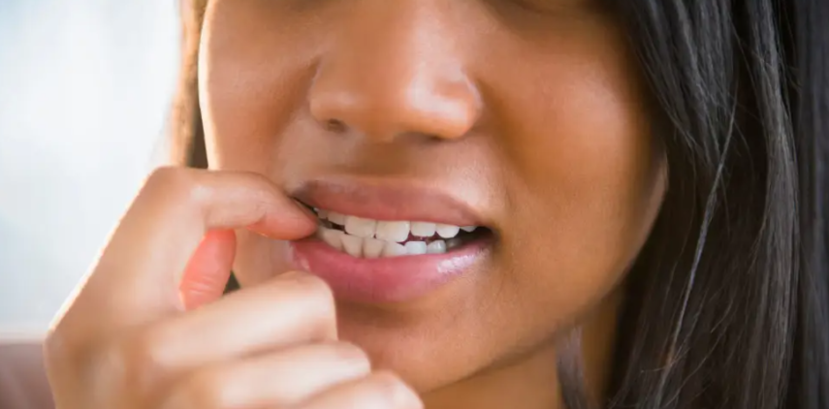6 Bad Habits That Affect Your Teeth and Gums

Dr. Navid Rahmani is a top rated, best in class dental implants specialist in NYC. He passionate about ensuring his patients receive the best and most appropriate dental care in New York Dental Implants Center. He graduated Cum Laude from New York University before receiving his doctoral degree from Stoney Brook School... more
Oral health is a crucial component of your daily routine, and it is essential to be aware of the steps to take to maintain healthy teeth and gums. Brush twice a day, floss daily, and visit your dentist at least twice a year for cleanings and checkups. While basic dental hygiene is crucial for maintaining your teeth in good condition, so is avoiding habits or activities that might harm your teeth. In this article, we have gathered six bad habits that affect your teeth and gums.
1. Teeth grinding
Grinding your teeth or clenching your jaw while sleeping, known as bruxism, can be triggered by stress as well as a sleep problem called sleep apnea, which impairs your breathing. Continuous teeth grinding can result in considerable damage, such as cracked, chipped, or fractured teeth, which may necessitate dental restorations such as a crown or tooth replacement with a dental implant.
Excessive teeth grinding can cause muscular and joint damage as well as persistent facial discomfort over time. Bruxism can be treated by wearing a nighttime mouth guard or a customized snoring device that your dentist can install. If you find yourself grinding your teeth throughout the day, consider relaxation techniques like mindful meditation.
2. Coffee addiction
Indeed, coffee is good, and sipping that first cup in the morning definitely helps you wake up. However, too much coffee can stain your teeth, giving them a dull yellow tint. Additionally, adding sugar to coffee can lead to new problems, such as weight gain and cavities. As a result, many oral healthcare providers advise people to limit their coffee consumption to at least one cup per day.
3. Nail biting
Biting your nails is a bad habit for a variety of reasons. Doctors caution against it because of all the bacteria you're putting in your mouth, but the negative effects of nail biting also extend to your dental health. For instance, chewing your nails can cause tooth damage.
Because you are applying the same stress on the same teeth each time, regular nail-biting might cause your teeth to shift out of place. When you bite your nails on a daily basis, you push your jaw forward for lengthy periods of time, putting abnormal pressure on it and perhaps leading to jaw dysfunction and TMJ condition.
4. Aggressive tooth brushing
Many people brush their teeth aggressively in the mistaken belief that doing so will thoroughly clean and eliminate plaque from the teeth's surface. Brushing too hard, on the other hand, can cause enamel wear and gum recession over time. Brush your teeth for two minutes using a soft-bristled toothbrush instead.
5. Smoking
Smoking is one of the most damaging behaviors to your teeth and gums. When you smoke, your body has to work harder to keep the body healthy, increasing your risk of gum disease. Smoking also affects the healing process, requiring you to heal from gum disease and other oral issues for a longer period of time. Smoking can discolor your teeth, making them appear yellow. Cigarette smoke can also contribute to bad breath.
If you are ready to quit smoking, there are several services available that can help you give up this harmful habit. Discuss smoking cessation programs with your dentist. To control cravings, you might try a nicotine patch or gum.
6. Alcohol consumption
Alcohol dries out the mouth, prevents saliva from wiping away bacteria, creates bad breath, and increases the likelihood of cavities. Moreover, because alcohol is acidic, it wears away the tooth enamel. Reduce your alcohol consumption to no more than one drink per day for women and two drinks per day for males, or replace it with carbonated sparkling water.








